"Khrushchev" - the first experience of "perestroika" in the USSR
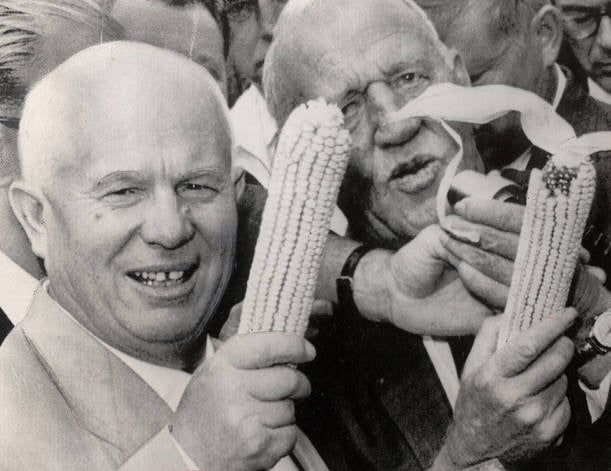
The XX Party Congress (February 1956 of the year) was a terrible blow to the international authority of the Soviet Union and its future. Delegates to it were carefully selected, mainly from party apparatchiks. At the end of the congress, Nikita Khrushchev held a closed meeting, without the presence of the press and representatives of foreign communist parties, where 4 had read the “secret report” for hours.
Old anti-Stalinist arguments were mainly used: Lenin’s “testament” stories about how Stalin offended Krupskaya, perverted the norms of "party democracy." Repressions were condemned, the Supreme was blamed for the defeat of the initial period of the war. Moreover, such issues as collectivization, industrialization, “famine”, were avoided. They condemned the repression only against a part of the party members (participants of the Yezhovshchina), rehabilitated the military - Tukhachevsky, Yakir, Blucher. As a result, the black myth about Stalin was created, as a “bloody” tyrant and villain, the party was asked to return to the “origins” - true Leninism. Although it was under Lenin that mass repressions began, terror, concentration camps were created.
The “secrecy” of the report was false. Khrushchev and his entourage pre-printed it in the form of a book, which was distributed among the delegates, and then began to issue and non-partisan. The report was discussed at meetings in enterprises, collective farms, military units, even among high school students in schools. The information got into the foreign communist parties, and from there into the Western press.
Thus, Khrushchev and Co. actually undermined the foundation of all Soviet statehood. Millions of Soviet citizens who sincerely believed in a “bright future” were disappointed, the authority of the Soviet government fell heavily both domestically and abroad. Split into the unity of the Communist Party, many Communists, outraged by the attacks on Stalin, began to express their outrage. The party leadership had to temper its anti-Stalinist fervor somewhat. In June, the CPSU Central Committee adopted a resolution on overcoming the cult of personality and its consequences, there, in general, the course of Stalin’s party was declared correct, and “some limitations of inner-party and Soviet democracy” were recognized as inevitable “in the midst of a bitter struggle against the class enemy”. The excesses were explained by the personal shortcomings of Comrade Stalin. But the deed was done, mistrust settled in the hearts of the people.
"Criticism of the cult of personality" strongly affected the international prestige of the Soviet Union and respect for the Soviet idea. The foreign communist parties were weakened, the influx of people who believed in the ideals of communism stopped, many people left them. Relations with China were completely spoiled, Mao Zedong considered Khrushchev’s behavior ugly and “revisionist”, we lost a powerful ally. Fermentation began in Czechoslovakia, Poland, Hungary, and East Germany. Since Stalin’s “criminal” course, why stay in a socialist camp? The West received an excellent tool for the informational struggle against the socialist system and skillfully warmed up such sentiments.
In addition, the Western intelligence services had previously created, in the framework of the operation "Red Hat - Red Socks", the anti-Soviet underground. Hungarian, Czech, Polish, Romanian immigrants received special training through the CIA, they had to organize a "resistance movement" in their countries. And near the borders of these states were created caches of weapons.
In most countries, serious unrest was prevented, but in Hungary it came to insurrection. The rebels killed Soviet soldiers, employees of the Hungarian state security agencies, people who were accused of pro-Soviet sympathies. This uprising was quickly suppressed, with the help of ATS troops. The West did not respond to calls for help, they did not intend to get involved in a war for some sort of Hungary.
The consequences of the anti-Stalinist campaign shook the power of Khrushchev. In addition, he began his regular reforms - the decentralization of the national economy, the "corn epic", the policy of "rushing forward." The party leadership rallied against him. As wrote D.T. Shepilov (Minister of Foreign Affairs in 1956-1957 years, a member of the CPSU Central Committee), “the unsystematic stream of the most incredible, ridiculous, illiterate initiatives and instructions of Khrushchev made it obvious to everyone in the spring of 1957: Khrushchev must be removed before he broke the firewood.”
In June, when Khrushchev went to Finland, the presidium of the Central Committee tried to take it off. They voted for this quite legally, in the framework of "party democracy." But it did not. Zhukov spoke out against the "conspirators", he threatened to appeal to the army, on military planes, members of the Central Committee were brought to Moscow urgently, the question was brought to the plenum. Materials on participation in the repressions of Molotov, Malenkov and Kaganovich were reported at the plenum, their attempt failed. The conspirators were declared an "anti-Party group" and removed from all posts.
Soon came the turn and short-sighted Zhukov. In just a month 4, when the marshal went abroad, Khrushchev made a decree “on the cult of Zhukov’s personality and his inclination towards adventurism, opening the way to Bonapartism”. The commander was dismissed from all posts, dismissed. And in March, 1958, Bulganin was also dismissed, Khrushchev took the post of head of government, becoming the sole ruler.
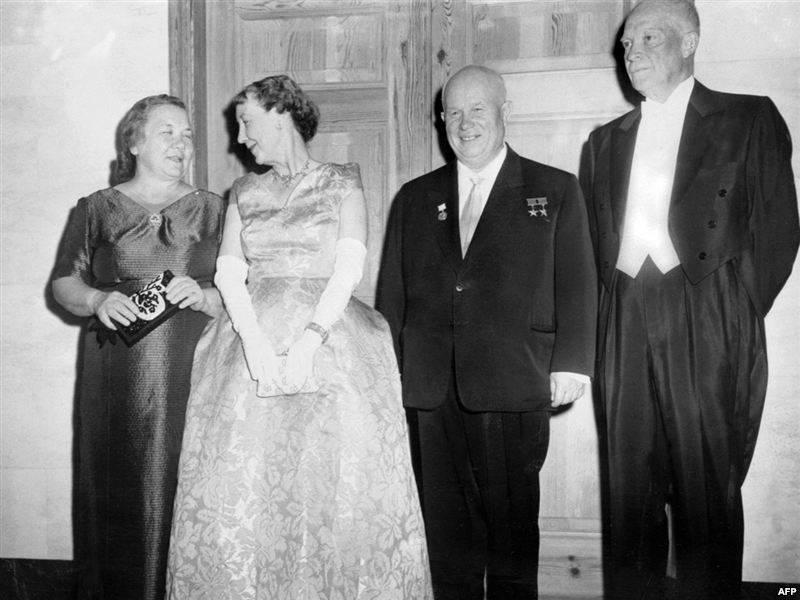
From left to right: Khrushchev's wife, Nina, Eisenhower's wife, Nikita Khrushchev and Dwight Eisenhower in Washington during the official visit of the USSR leader to the USA. 16 September 1959 of the year.
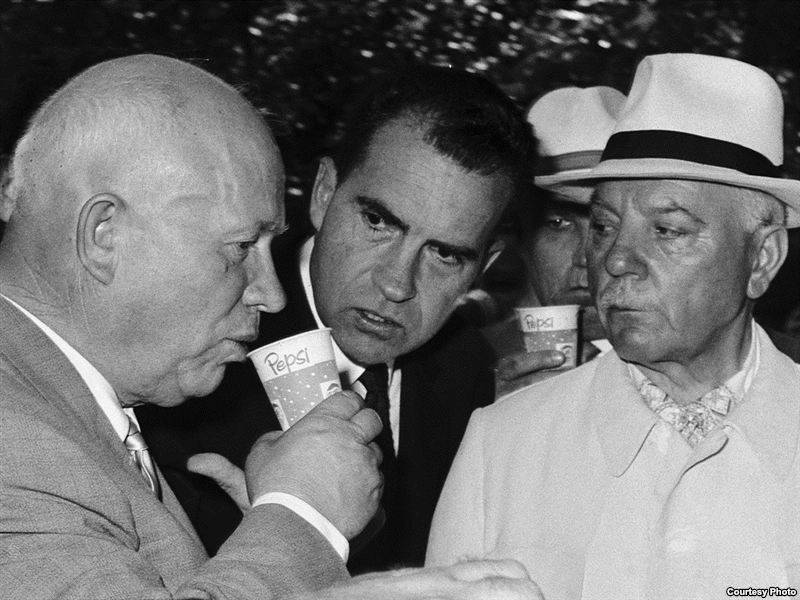
Nikita Khrushchev (left) drinks Pepsi-Cola, Richard Nixon (center) is watching him. American exhibition in Moscow, July 1959 of the year.
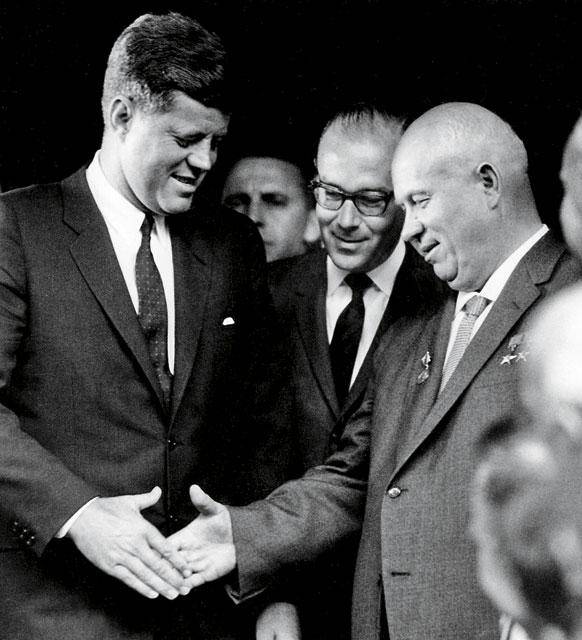
Nikita Khrushchev had a good personal relationship with John Kennedy.
"Khrushchev"
The rise of the village, the increase in the standard of living in the cities in the 1950's were short and fragile. They "flirted" with the people only as long as there was a struggle in the leadership. After Khrushchev received full power, the reforms went completely different - chaotic and erratic. With all the breadth of the Khrushchev initiatives, they were distinguished by one feature - they were all aimed at the destruction of the Union. Of course, Khrushchev himself, like Trotsky, cannot be written down as “agents of world imperialism”, but the fact that he was sent using his foolishness is a fact.
The rise of agriculture has come to an end. The machine and tractor stations (MTS) were eliminated. Collective farms were often forced to buy out old equipment at the price of a new one, and the previous savings were spent on it. In addition, the collective farms did not have a normal repair base, hangars for equipment, there was a problem with the staff. Specialists at MTS earned good wages, collective farms could not offer the same.
In the 1957-1960 years, a campaign began to consolidate the collective farms: their number decreased from 83 thousand to 45 thousand. They assumed that they would create "collective farm unions" and the project of Khrushchev's "agro-towns" would be implemented. But the implementation of such a project required large funds, the collective farms did not have them, their accumulation was “eaten up” by the dissolution of the MTS.
The course was taken to eliminate "unpromising" villages. Moreover, they determined the “futility” of the villages by indicating from above or “specialists” who are not related to this area of life. Residents were resettled, abandoned villages and farmsteads appeared throughout Russia. The process of "defusing" of the indigenous Russian regions was launched.
The development of virgin lands was going on, fixed assets and equipment were thrown at this program. Young people were driven there along the Komsomol distribution lists, they sent qualified specialists - drivers, livestock specialists, machine operators, etc. They sent them in whole issues of young teachers, doctors, agronomists. They also sent young collective farmers from "unpromising" regions. In fact, the Russians were deported from Great, Small and White Russia, these areas “exsanguinated”, deprived the youth. And all under vigorous slogans, with songs and music, optimistic reports. As a result, the "development of virgin soil" led to devastating consequences.
There was a "corn epic", "meat campaign", "milk records" were beating. Just a shaft of disorganizing events. So, Khrushchev declared corn a means from all the ills of agriculture, they say, corn will quickly solve the problem of feed grain. From 1955 to 1962, its acreage was doubled. Moreover, it was sown even in those areas where this culture was not suitable for climatic conditions. Managers who did not fulfill the norm for corn were removed from their posts (it’s not the climate that is to blame, but the head!). Therefore, the leaders, to keep the posts, cheerfully reported on the successes, made additions, went to forgery.
In 1957, Khrushchev called for the 3 of the year to triple the production of meat (!). The first secretary of the Ryazan regional committee A.Larionov volunteered to triple the production in 1 a year! The example of Ryazan was followed by several more areas. In the Ryazan region, in order to fulfill the promise, they began to slaughter all the cattle, including young animals, dairy cattle, and buy meat from the population. But still not enough, then they began to buy meat in neighboring areas, funds were spent, which were allocated for construction, health care, education. In December, reported on the implementation of the plan. And A.Larionov received the title of Hero of Socialist Labor, the region was awarded the Order of Lenin. But the next year, Ryazan had to fulfill an even higher plan. And she could not do it - there was neither cattle nor money. As a result, Larionov committed suicide.
Khrushchev began the "second collectivization." By decision of the December plenum of the Central Committee 1959, personal livestock were called to buy, and personal plots and subsidiary farms were prohibited. They say that the household prevents the villagers from doing everything they can on the collective farms. Thus, they struck at the well-being of the villagers, who could receive additional income at the expense of their farms. Many villagers moved to the city or went to the virgin lands, because there it was possible to "go out to the people."
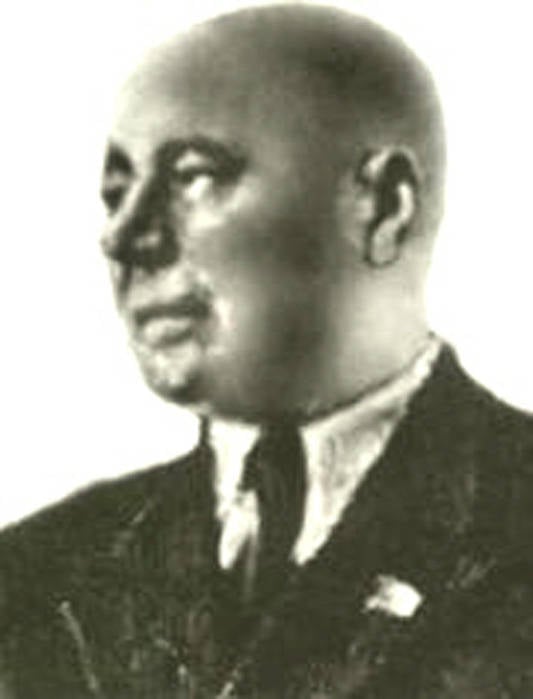
A. Larionov
Rehabilitation of nations, territorial and administrative innovations
7 February 1957 was restored the Chechen-Ingush Republic (CIR). Several autonomous Cossack districts of the Terek right bank were transferred to CIR, were deprived of autonomy. In addition, the 4 region of the Terek left bank, which were not part of the CIR, was cut off from the Stavropol Territory in favor of the republic. Apparently, as a “compensation”. The eastern part of Stavropol - Kizlyar district inhabited by Cossacks - was given to Dagestan.
At the same time, Chechens, who were returning from exile, were prevented from returning to the mountainous areas, were sent to the lands of the Cossacks. So, already in 1959 in the Naursky region of the Chechens there was 7,3%, in Shelkovsky 5,7%, then their share only grew. The return from exile of Karachai, Balkarians, Ingushes caused the hidden deportation of Ossetians, Circassians, Kabardians, who received these lands in 1944 year. As a result, it was under Lenin and Khrushchev that the “mines” of inter-ethnic conflicts were laid, which will explode after the collapse of the USSR.
Another "mine" laid the transfer in 1957 year from the RSFSR of the Crimea region in the Ukrainian SSR. This event is not motivated by anything, just spent and everything.
In Kazakhstan, they began a campaign of “besieging” nomadic Kazakhs to the ground. And again, they were often settled in areas that the Russians had already mastered or mastered during the “uplift of virgin lands”.
As part of the campaign to promote “national cadres”, representatives of “titular nations” began to receive key posts in administrations, party organs, the education system, and health care.
Industry. Development programs
In 1957, the course was set for the "decentralization" of the national economy. Branch ministries (allied and republican) were eliminated. Instead, they created economic councils on a territorial basis. In the regions, factories, enterprises (producing different products, belonging to different departments) were to unite under a single leadership, to interact with each other. Naturally, this led to chaos, the destruction of established work patterns, the disruption of supplies, financing, and production. In order to somehow straighten the situation, the republican economic councils were created, then the All-Union Council of National Economy.
In 1959, at the XXI party congress, the slogan “Catch up and overtake America” was adopted. In the same place, not a five-year plan was adopted, but seven-year plans. It was for 7 years that they planned to catch up and overtake the USA in terms of total output, in terms of per capita. To provide for the inhabitants of the USSR the highest standard of living in the world.
In 1961, the XXII Party Congress took place. He was marked by new attacks on Stalin. He was accused of killing Kirov. New measures were taken to combat “Stalinism” - a campaign was launched in the country to demolish its monuments, renaming cities and objects named after him, and Stalin’s body was removed from the Mausoleum. His books or books about him were withdrawn from libraries, his busts, paintings, portraits were destroyed.
Adopted a program to build communism in the USSR to 1980 year. By 1971, they planned to build the material and technical base of the future order. And then enter it, in the "paradise". Where there will be “from each according to his abilities, to each according to his needs,” the differences between village and city, mental and physical labor are overcome. And where, according to the teachings of Marx, there is no need even in the state. The functions of the state were to pass to the "workers' self-government bodies".
The slogan "Catch up and overtake" and the desire to create the material and technical basis of communism led to a new assault. At the same time, the increase in production was carried out not due to the modernization of existing enterprises, but due to the creation of new plants. In addition, the traditional industrial regions of Russia did not develop; most of the resources were thrown into the development of the margins - the Baltic states, the Transcaucasus, the republics of Central Asia. Young specialists drove there, old cadres flowed. As before, the main priority was given to heavy industry, but under Stalin this was justified by the need to industrialize the country and create a military-industrial complex. Moreover, the “imbalance” even increased: if in 1953, the heavy industry was producing up to 70% of production, then by the beginning of 1960's, the list had reached 75%.
Crisis
As a result, consumer goods disappeared from the shelves, and, moreover, agriculture was going through hard times. The gain from virgin soil turned out to be an illusion of success: the plowing of the land destroyed extensive pastures, soil erosion began, the land was quickly depleted. The Soviet country was on the verge of starvation, the issue of food had to be rationed, so, the bread was given to a loaf of hands.
The government began to lie - they said that the people began to live better, therefore they buy more, because of this there was a shortage of food and manufactured goods. Then they increased the prices of a number of food products - up to 25-30%, the tariff rates for production dropped by a quarter.
The people were not happy. In Novosibirsk and Karaganda, Khrushchev had to flee from the crowd. Gorky had to leave secretly so that the citizens would not be caught. With indignation, Khrushchev was greeted in Tashkent, Kiev, Novorossiysk. In Kiev, at a meeting of agricultural workers, the barmaid rushed Khrushchev with a knife. In a number of cities there were spontaneous unrest. The most famous thing happened in Novocherkassk on 1-2 on June 1962 of the year, during its suppression several dozen people were killed and wounded, 7 "instigators" were later shot.
As a measure designed to solve the food problem, it was then decided to buy grain in the West. In 1920-1940, the Russian peasantry was very hard, but the grain was exported - it was an important source of currency, the village actually created the industrial base of the country with its sweat and blood. And 1960-s, after winning the war, creating a developed industry, had to buy grain. In a word, "caught up and overtook" the United States.
Other reforms
Under Khrushchev, a new wave of persecution against Orthodoxy began. The campaign was led by the main ideologist of the party MA. Suslov. Christian churches were closed all over the country, they were given as warehouses: under Stalin, there were 20 thousand temples, with Khrushchev, just over 7,5 thousand remained. Again, priests and believers were arrested. Previously, Khrushchev did not show such anti-religious agility. In Ukraine, he was indifferent to the church. Walked through the Old Believers, they were declared "sectarians." The prayer houses were closed, the ustavts were arrested. During the pogroms of the Old Believer communities, many ancient books, manuscripts, icons, including 16-17 centuries, were seized. For example, they were taken to the storerooms, repositories of the Grozny University and the Grozny Museum, in the 1990-s all this rich Russian cultural heritage was lost.
At the very beginning of the Khrushchev's “perestroika” - in 1955 - the Stalinist decree banning abortion was canceled (it was published in 1936, it introduced criminal liability for abortion). “Thanks to this” over the following decades, the Russian and other indigenous peoples of the Russian civilization lost tens of millions of lives. This act was one of the reasons for the current demographic catastrophe. At the same time, “educational” work was carried out on the “harm” of prohibitive measures, they lied about their inefficiency, they agreed that an abortion has a positive effect on a woman, “rejuvenates” her. And childbirth on the contrary - is aging.
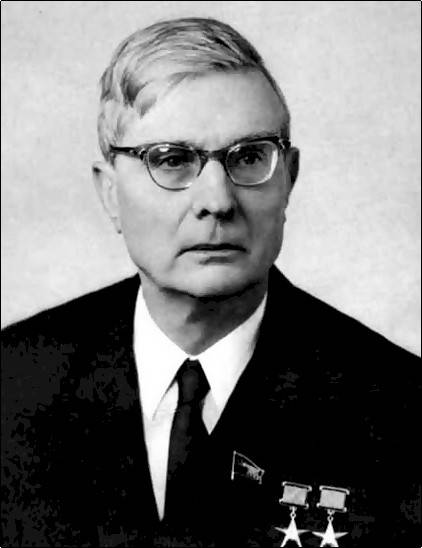
M.A. Suslov.
Foreign policy "achievements"
Khrushchev continued the line of "defusing tension." In 1959, Khrushchev visited the USA, the Paris Conference was convened, and a meeting with Kennedy was held in Vienna. All these activities ended in nothing. The West did not intend to make compromises and concessions. But Khrushchev again, in order to show the peacefulness of the USSR, took unilateral steps. He declared that the world should go towards disarmament and, as a result, disband the national armies altogether, retaining only the police forces (!). And he expressed his willingness to start first! Proclaimed the cessation of nuclear tests, conducted a large-scale reduction of the army: the number of Soviet armed forces decreased by more than 2 times, from 5,8 million people to 2,5 million.
And everything was done "in Khrushchev's style", ill-conceived: they were now chasing conscripts to construction sites, to virgin lands, and the officer corps was simply beaten up. Hundreds of thousands of highly experienced military specialists, heroes of the war were simply fired. Without retraining, without housing, without a new job. Divisions, regiments, schools were disbanded. Many important military-scientific programs, developments that could turn the USSR into a space superpower, the power of the 21 century in the second half of the 20 century, were put under the knife. Masses cut conventional weapons - first-class ships, airplanes, Khrushchev thought it was all outdated - there are intercontinental missiles. The West did not appreciate all this, the nuclear tests continued, the armed forces did not decline, the arms race continued.
At the same time, Khrushchev planned to strengthen the position of the USSR in the world. He pulled new countries onto his side, which were formed on the ruins of the collapsed colonial system. Practically, Trotsky’s policy of “world revolution” and “proletarian internationalism” was restored. Let me remind you that Stalin pursued a course aimed at restoring Russia as a world great power, in effect making it the geopolitical successor of the Russian Empire.
The financing of various regimes, which were declared “friendly”, unprecedented in scale, was deployed. Thus, the resources needed for the development of Russia-USSR were sent abroad. Naturally, the regimes willingly expressed “friendship” in order to receive funding, assistance from Soviet specialists in the field of national economy, defense, health care, education, etc. Although such a policy often led Khrushchev and the USSR to lose.
Thus, the United Arab Republic (Egypt and Syria) received a loan of $ 100 million for the construction of the Aswan Hydroelectric Power Station, helped in its construction, saved the country from the united aggression of France, Britain and Israel. As a result, the Sadat regime shifted to the United States, and the persecution of the Communists began. Iraq, Congo and a number of other countries also supported nothing.
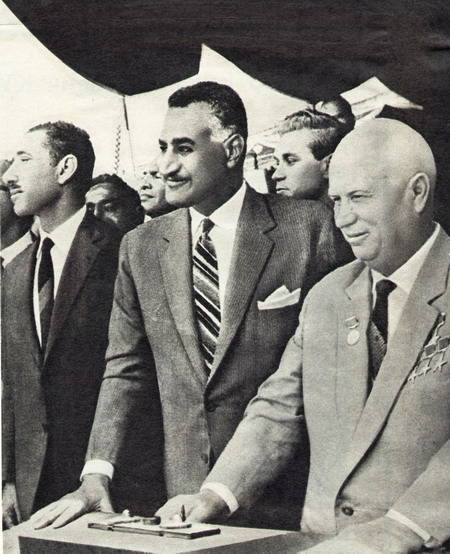
Khrushchev and Egyptian President Gamal Abdel Nasser.
Khrushchev completely quarreled with the Chinese. Stalin was a real authority for the Chinese Communists, and the “criticism of the personality cult” in China was very cool. As a result, Moscow and Beijing became rivals in the socialist camp. In addition, the USSR helped the Chinese in creating nuclear weapons. Eisenhower impressed Khrushchev that for the sake of "detente" it was necessary to limit the spread of nuclear weapons. He agreed, naturally, unilaterally, since Paris and London also developed nuclear weapons. Khrushchev began to convince Mao of the United States' peace lovingness, the need to curtail the development of atomic weapons. Beijing reacted harshly, Moscow recalled the Soviet specialists, joint nuclear research turned off. Suslov blamed China for "imperialistic aspirations." We lost an ally and got a competitor, the socialist bloc disintegrated.
Clash with the West
When the new proposals for Berlin failed, and Moscow offered to turn West Berlin into a “demilitarized free city,” it was decided to act. 13 August 1961 year began construction so-called. Berlin Wall. This act provoked sharp discontent of the Western world.
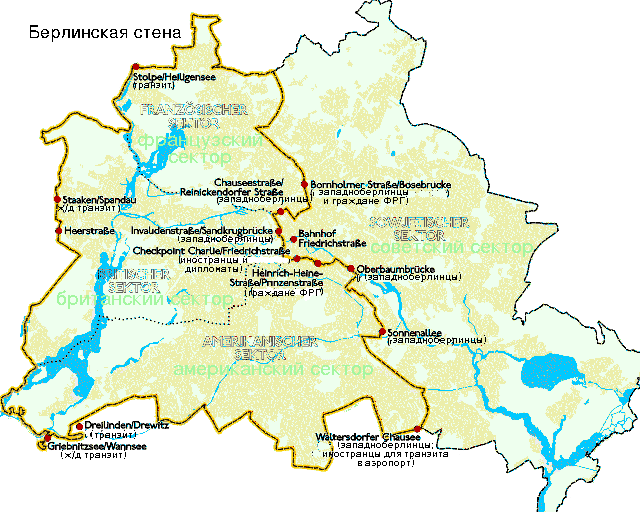
Map of Berlin. The wall is marked with a yellow line, the red dots are checkpoints.
Then Washington began to deploy nuclear missiles in Turkey, in response, Moscow concluded an agreement with Fidel Castro. Soviet medium-range missiles were deployed on Liberty Island. The United States took a very tough position and prepared for retaliatory actions. The world was on the verge of a world war. Washington demanded to remove the Soviet missiles from the island, organized a naval blockade of Cuba, threatened with a military strike on Liberty Island. Khrushchev conceded: the missiles were withdrawn, but the US gave a guarantee of security to Havana and removed their missiles from Turkey. The leadership of Cuba regarded the actions of Khrushchev as a betrayal - a conspiracy with the United States, without taking into account the opinion of Havana.
Conspiracy
The experiments of Khrushchev got not only the common people, but also the party nomenclature. More recently, she was his support. Khrushchev did a lot for her - secured her, supported her privileged position. But by his actions, continuous changes, breaks in the established order, he did not let her live peacefully. In addition, the destructive processes in the national economy could lead to major popular unrest.
The basis of the conspiracy were his former supporters - Mikoyan, Suslov, Brezhnev. The preparation of bias was facilitated by the fact that Khrushchev, fully confident in his position, became very interested in traveling around the country and around the world. In July, with the consent of Khrushchev, Brezhnev received the Secretariat of the Central Committee, replacing Mikoyan, who took over his post as chairman of the Supreme Soviet. By October, Brezhnev was able to take control of the party in his hands. And when Khrushchev went on vacation, the Central Committee plenum convened without his knowledge. October 13 1964, the year of Khrushchev was brought to the plenum, and Suslov presented him with a request for resignation. Khrushchev was put before the fact, accused of "voluntarism" and "subjectivism." He was removed from all posts and sent to retire. People were told about "old age", "deteriorating health."
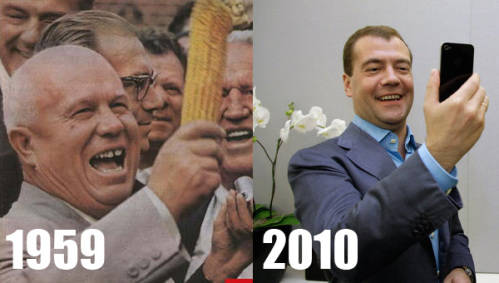
Sources of:
Vanyukov D.A. Khrushchev thaw. M., 2007.
Vert N. History of the Soviet state. M., 1994.
Kara-Murza S. G. Soviet civilization. In 2's xk. M., 2001.
http://lib.ru/MEMUARY/HRUSHEW/kult.txt
http://topwar.ru/6537-nachalo-ottepeli-pervye-vneshnepoliticheskie-uspehi-hruscheva.html
Information